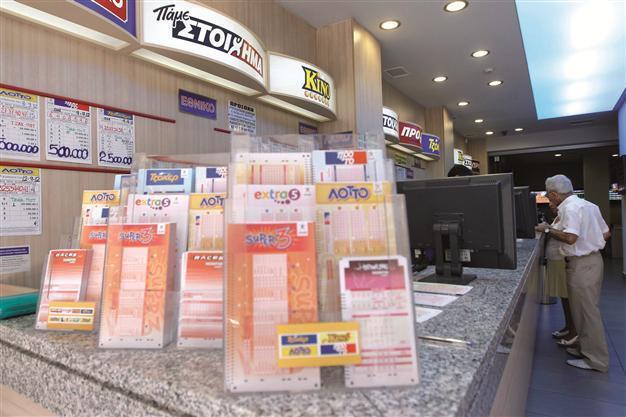Greek privatization program a hard task
ATHENS - Agence France-Presse

People are seen inside an OPAP lottery shop in Athens. Greece plans to sell the asset.
Greece has relaunched its privatization program to appease its bailout creditors, but efforts so far to raise money by selling off state assets have failed to attract investors due to the country’s uncertain economic outlook.
The election of a conservative and economically liberal prime minister in June raised expectations in a country where no major privatization has taken place for several months.
But analysts believe that the year could well end without any significant developments.
During his recent visits to Berlin, Paris and Frankfurt, Prime Minister Antonis Samaras complained it was impossible to attract investors if high-ranking European officials continued to publicly discuss a possible Greek exit from the
eurozone.
But over the past few weeks, Europe has adopted a more conciliatory tone towards Athens, while insisting privatizations must speed up.
After five months of inaction, the privatization fund relaunched its program earlier this month and announced the candidates selected for the second phase of the tender process for the key property of the Hellenikon park.
Previous attempts to exploit the Hellenikon, which is almost twice the size of New York’s Central Park and borders Athens’s southern coastline, have failed.
It also announced candidates for the second round of the tender process concerning a land plot on the island of Corfu, in western Greece.
And the fund’s board will meet again on September 19 to try to finalise the details for the sale of the state lottery to private investors.
This process will then prime the tender concerning the sale of 29 percent shares in state gambling operator OPAP.
This relaunching of a privatization program that is supposed to bring in 19 billion euros by 2015 comes just as Greece is trying to secure a positive report from the troika of auditors representing its EU, IMF and ECB creditors.
Their report, expected in October, will determine whether Greece, which is facing a fifth year of continuous recession, will receive the next vital installment from its EU-IMF rescue loans.
“I think there is a real political will by the government to accelerate and have results on privatization,” economist George Pagoulatos, former advisor to the previous prime minister Lucas Papademos, told AFP.
“They understand that a lot of the government’s credibility vis-a-vis the European partners is staked on delivering in privatization,” he added.
bankrupt, debt crisis, sovereign,
